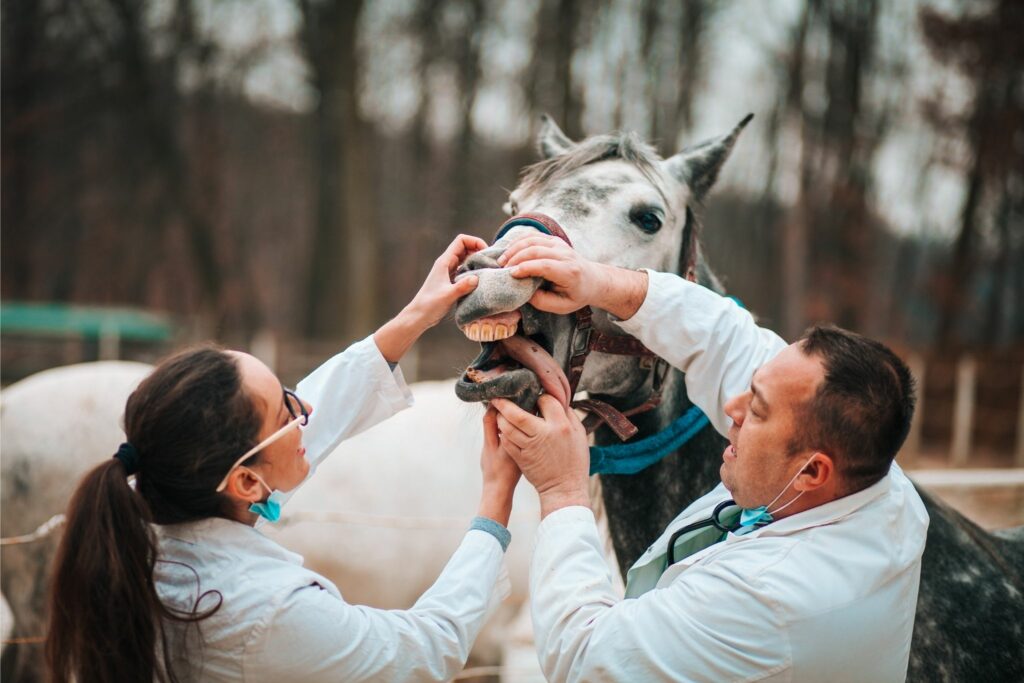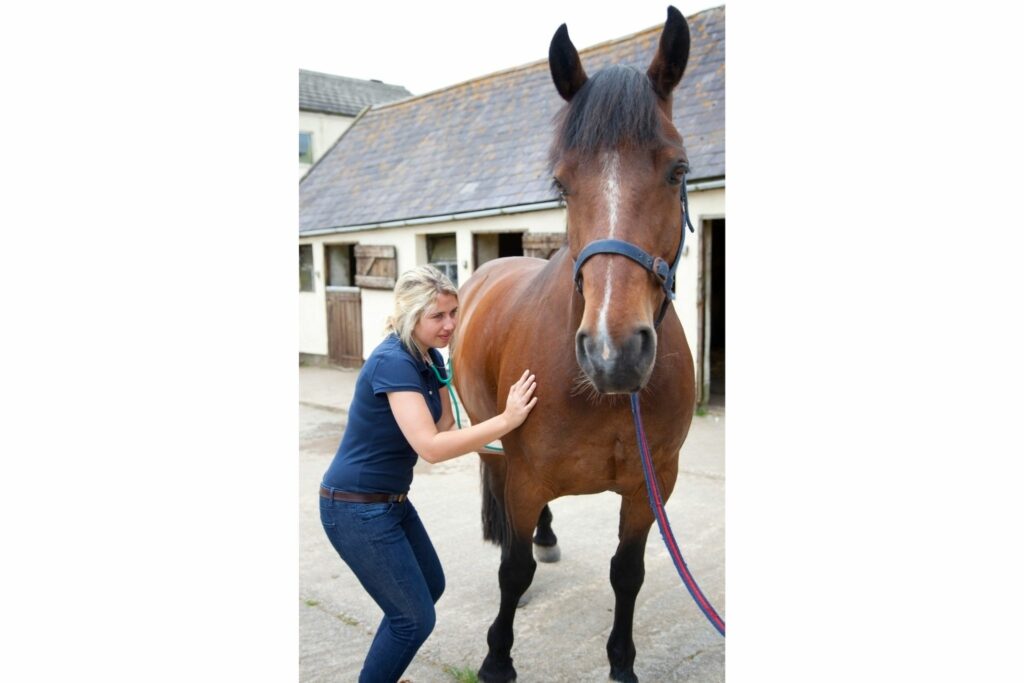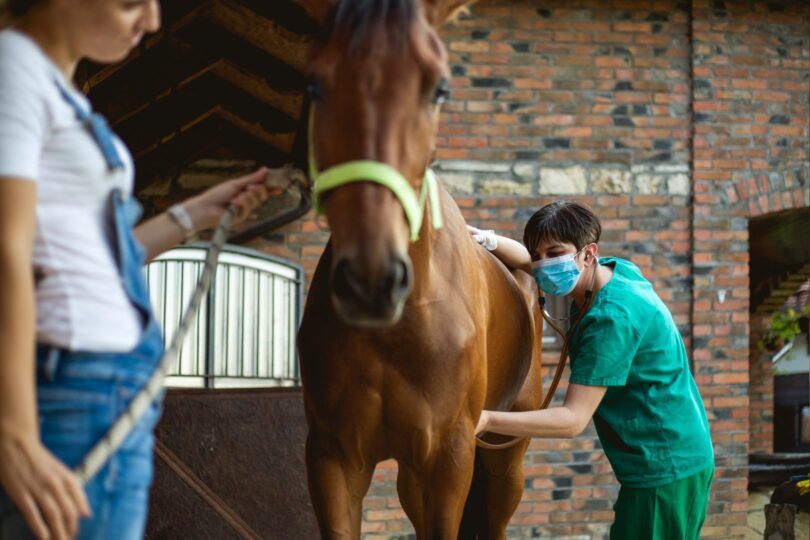University Veterinary Programs Often Accept Equine Donations
Whether you’re heading off to college, in a bout of financial hardship, or think it’s time for your horse to retire, donating your horse to a vet school may be an option.
Donating your horse isn’t an easy decision, but it may be a great alternative to selling your horse. Consider what your horse is capable of or what kind of care they need. Don’t be afraid to reach out to multiple schools or programs to find the best fit. Be prepared for your horse to go through a two- to four-week trial to ensure a good match.
Equine Donations: The Basics
Most schools and programs can’t afford to buy horses, so they rely on donations.
Horses donated to these programs receive top-notch care while providing invaluable learning experiences for students.
Why consider donation?
Your horse can have a great second career or enjoy top-notch medical care. Plus, donations are tax-deductible.
What does the donation process look like?
If your horse is considered a good fit (most programs will use a 30-day trial), then you will sign some paperwork and the horse will have a new home in the program.
How do you calculate the value of a donated horse?
If you want to file your deduction with the IRS, you’ll need to work with a Certified Horse Appraiser.
They’ll collect a bunch of info (like registration papers, vet records, a recent video, etc.) and give you an 8283 tax form once they’re done.
Donation Options
It’s not just vet schools that need horses. Colleges that offer barn management degrees or courses, and even therapy programs, are good options.
Vet School Donation
If your horse has expensive, high-maintenance, or constant medical care needs, donating them to a medical school is an excellent choice.
Your horse will receive daily care and help many students practice their skills.

Photo Cred: Canva
Equestrian Team Donation
Equestrian teams are always on the lookout for quality horses for their programs. High-performing horses, who need a step-down, are often perfect candidates.
Vet School Donation Logistics
There are a few things you should know if you’re considering donating your horse to a vet school.
The Process
To begin with, reach out to the program or school you have in mind. Some run breeding programs so students can practice handling stallions and monitoring pregnant mares.
Others have a surgical focus and may put the horse down after certain procedures.
Equine Uses
Horses donated to a vet school can be used for many purposes.
- Breeding (stallions and mares)
- Training (problem horses or difficult older horses)
- Medical issues practice (practicing doing basic exams, wrapping legs, wound care, etc.)
- Surgery practice
- If your horse needs to be euthanized, some programs will accept your horse’s body.

Photo Cred: Canva
Frequently Asked Questions
Q: What do vet schools use horses for?
Vet schools use horses for anything from basic training to handling to breeding to surgical practice.
Q: Why donate your horse to a vet school?
If your horse has medical issues that are too expensive for you, or that require constant care, a vet school may be the perfect place for them.
Students get to practice real-world care under the supervision of qualified vets, and your horse gets top-notch attention.
Q: Where else could you donate a horse?
You can donate horses to therapy programs, riding camps, equestrian schools, riding clubs, or colleges with equestrian degrees and programs.

Photo Cred: Canva
Parting Thoughts
Donating your horse to the right vet school or equestrian program can be a great next step in the life of your horse, as well as ensure students a great start in a vet career.
The horse receives excellent daily care, and donations are tax-deductible—meaning a nice potential return for you.
P.S. Enjoy this article? Trot on over to:
- 9 Best Gift Ideas Horse-Crazy Moms Will Love
- Equine End-of-Life: What Happens When Horses Die
- Shelby Dennis & Milo’s Equestrian Gift Guide
- Horse Nosebleeds: No Big Deal or Cause for Concern?
- What Do You Buy Equestrians for Christmas?
- 31 Best Horse Gifts for Teenage Girls (All Budgets)
- Horse Rookie Equestrian Gift Ideas
- 12 Gifts Barn Owners, Managers & Workers Will Actually Love
- 8 Best Horse Cameras (Action, Helmet, Trailer, Barn, Drone)







